Why CDT?
- A unique diploma that combines Psychology, Social Work & Social Innovation to prepare you for fulfilling careers in the growing care economy
- Be equipped with industry-relevant skills such as research, facilitation and project management
- Make a real impact in the community by co-creating innovative solutions for social causes with industry partners like Deloitte, Metropolitan YMCA and Ministry of Social & Family Development
- Choice of 3 specialisation areas: Youth, Eldercare and DisabilitiesNEW!
About CDT
Passionate about making an impact in the communities? Curious about psychology and human behaviour? Keen to learn more about the different social sectors – youth, elderly and the disabled? If a career in the growing care economy is up your alley, our unique Diploma in Community Development (CDT) will give you a head start!
Through CDT, you will learn various aspects of psychology, social work and social innovation. You will learn to plan, coordinate and promote activities and programmes that will support community development and social causes. You will also gain insights into conducting research, analysing social needs and curating innovative solutions to address these issues. As the workplace and social service sector are becoming increasingly digitalised, CDT will equip you with digital competencies to thrive at work!
Choice of 3 Specialisations
In your final year, depending on your area of interest, you can choose to specialise in one of three key communities – youth, the elderly or the disabled.
Youth Specialisation: Acquire the skills to address the needs of youths-at- risk and the general youth population
Eldercare Specialisation: Develop programmes that enable active ageing and provide community-based support for the elderly
Disabilities Specialisation: Create campaigns that promote greater inclusivity and learn how to engage with caregivers
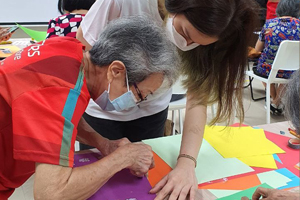
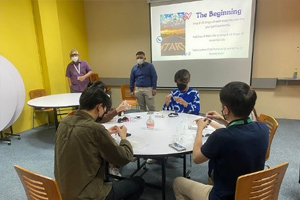
Customise your learning
You also get to customise your learning by choosing to go on a 6-month or 1-year internship, or undertake a Final-Year Project (FYP) or elective modules. Our leading partners that offer enriching internship opportunities include agencies and social enterprises such as National Youth Council, Trybe, Metropolitan YMCA, Institute of Mental Health, Ministry of Family & Social Development and Singapore National Co-operative Federation.
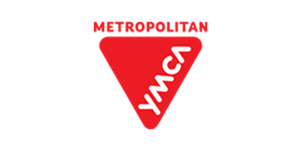
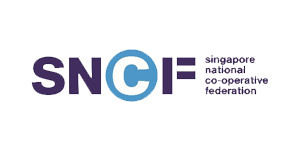

Further study options
Having acquired a broad set of skills, CDT graduates have a wide array of further study choices – including those in the social sciences, humanities and business – ahead of them. Our CDT alumni have gone on to further their studies in social work; politics, law and economics; psychology and more!
Keen to find out more about CDT? Watch this video to find out!
Overview of Your CDT Journey
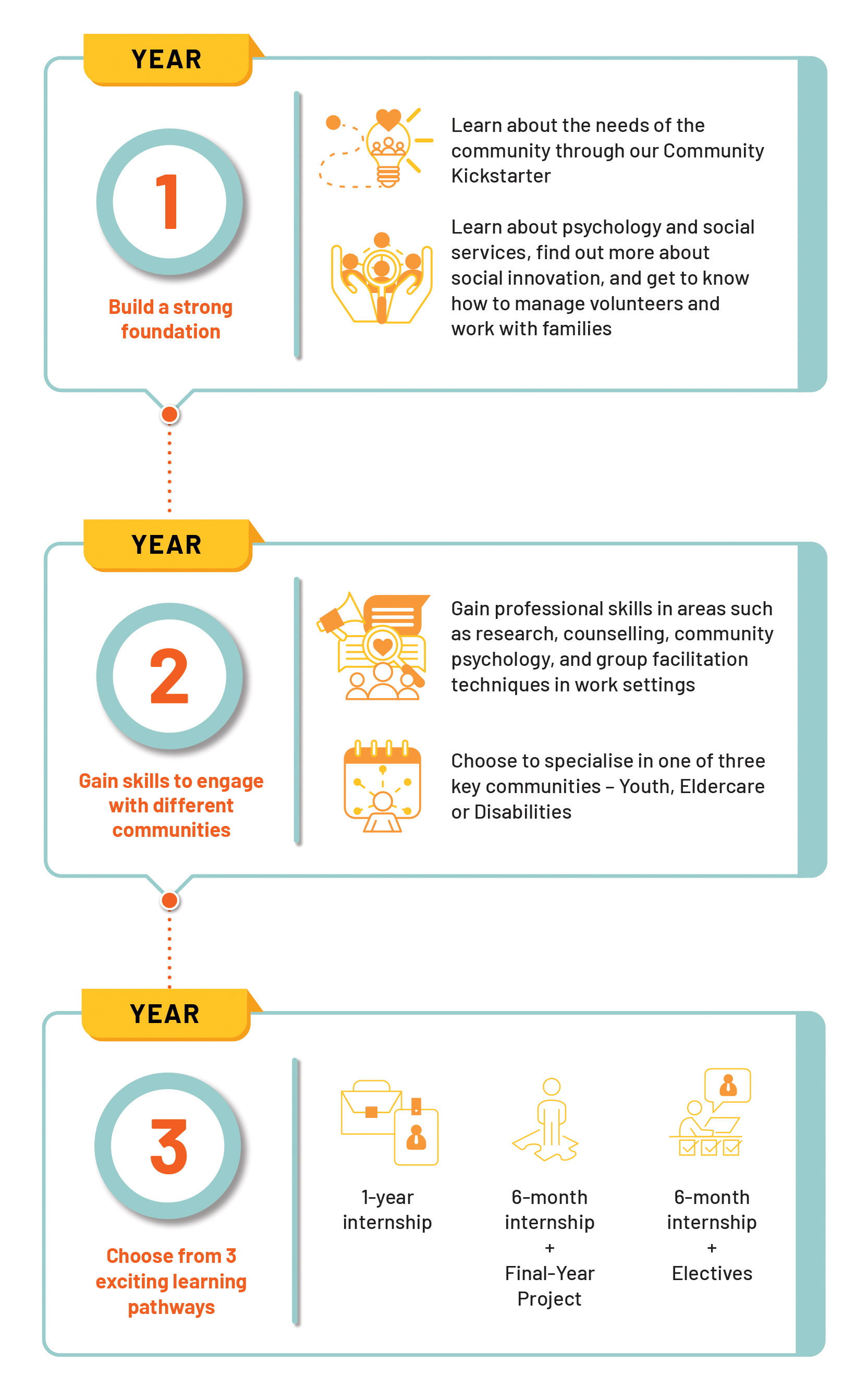
Inspiring Portfolio
CDT Social Hackathon
Organised by CDT students, the Social Hackathon attracted more than 80 secondary school participants who raised interesting proposals to address social issues. Mr Edward Chia – Managing Director of PlaceM, Director of Feed the World and Member of
Parliament – graced the event as its Guest of Honour and inspired the students with his passion for building sustainable enterprises that have genuine social impact.
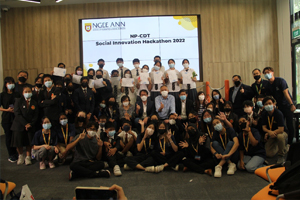
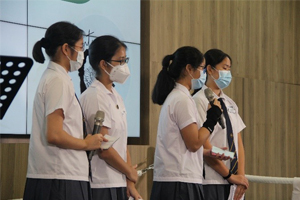
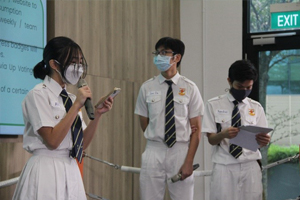
Further Studies
Graduates may pursue further studies in institutions of higher learning, both locally and overseas. As CDT is a broad-based diploma, graduates have a wide array of study choices, including those in the social sciences, humanities and business.
The following universities grant advanced standing to CDT graduates:
Singapore
- Nanyang Technological University
- National University of Singapore
Australia
- Edith Cowan University
- Bachelor of Counselling
- Bachelor of Youth Work
- Bachelor of Social Science
- Griffith University
- Bachelor of Human Services
- Bachelor of Child, Youth and Family Practices
- Bachelor of Human Services
- University of Queensland
- Bachelor of Psychological Science (Honours)
- University of Western Australia
- Bachelor of Psychology
- Bachelor of Business
- Bachelor of Commerce

Tan Yan Zi
Psychology Studies* graduate, Class of 2022
Yan Zi is pursuing a Bachelor of Politics, Law and Economics at SMU.
*Renamed the Diploma in Community Development

Toh Pei Ling
Business & Social Enterprise* graduate, Class of 2022
Pei Ling is pursuing a Bachelor of Social Work at SUSS.
*Renamed the Diploma in Community Development.
Careers
The community development and social services sectors are growing and expanding their talent pool. The Environmental, Social and Governance, or ESG, sector – which focuses on measuring the sustainability and ethical impact of businesses – is also gaining attention. You can look forward to pursuing careers in job roles such as:
- Community Development Executive
- Events Management Executive
- CSR Executive
- Marketing/Communications Executive
- Social Entrepreneur
- Social Work Associate
- Social Work Assistant
- Programme Coordinator/Executive
- Volunteer Executive
- Youth Worker
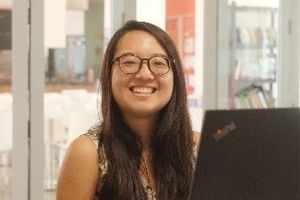
Jasmine Leong
Business & Social Enterprise* graduate, Class of 2016
Jasmine graduated from NUS with a degree in social work. A social worker at South Central Community Family Services Centre, Jasmine works with families and individuals on asset building and poverty transformation.
*Renamed the Diploma in Community Development
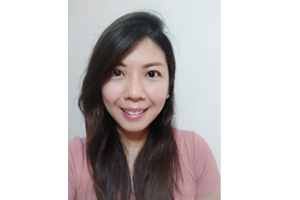
Sandy Ang
Psychology Studies* graduate, Class of 2011
Sandy is an educational psychologist at the Society for the Physically Disabled.
*Renamed the Diploma in Community Development
Entry Requirements
AGGREGATE TYPE ELR2B2-A
To be eligible for consideration, candidates must have the following GCE ‘O’ Level examination (or equivalent) results.
| Subject | 'O' Level Grade |
|---|---|
| English Language | 1-6 |
| Mathematics (Elementary / Additional) | 1-7 |
| Any one of the 1st group of Relevant Subjects for the ELR2B2-A Aggregate Type | 1-6 |
You must also fulfil the aggregate computation requirements for the ELR2B2-A Aggregate Type listed here ( 33KB).
For students with other qualifications, please refer to the NP website for the entry requirements and admissions exercise period.
What You Will Learn
Academic Communication & Thinking (4 Credit Units)
Essential Skills for the Digital Age (4 Credit Units)
This introductory module is designed to help students build critical digital skills needed to succeed in the 21st century. The module covers a range of topics for both the digital workplace and citizenship, including digital communication and collaboration, data investigation and analysis, productivity tools, social media, cybersecurity, responsible use of technology, as well as a roundup of the latest technology trends and future of technology.
Community Development & Human Services (4 Credit Units)
In this module, students are introduced to an exploration of the dynamic interaction between community development principles and human services in the local context, with a focus on the Asset-Based Community Development (ABCD) approach. The module delves into various resources tailored to address specific needs within different community demographics such as children, youth, the elderly, families, and individuals with disabilities and special needs. Emphasizing the importance of inclusivity and sustainability, the module provides an overview of relevant social legislation and policies influencing community and societal settings.
Principles of Psychology (3 Credit Units)
This module introduces psychology as a science of behaviour and mental processes. Students are given a broad overview of the different fields in psychology and will learn to actively apply psychological insights and concepts through fieldwork and projects.
This module gives students a foundational introduction to their three-year diploma course curriculum and how it prepares them for industry. It will help them to embark on their course with the end in mind, through guided reflection of their personal characteristics and producing an overall game plan for their future education and career goals. The module aims to deepen students’ commitment to the sector that the course prepares them for.
Innovation Made Possible^ (3 Credit Units)
Underpinned by the Design Thinking framework, Innovation Made Possible aims to build creative confidence in you. The module will sensitize you to the process of user-centric problem solving and allow you to discover and hone your innate ability to think creatively, come up with innovations to tackle problems and explore new ideas for your studies and beyond.
Workplace Communication Skills (4 Credit Units)
This module aims to provide students with an understanding of effective communication practices in the workplace. Students will develop the necessary skills to communicate effectively with stakeholders, colleagues, and clients in various communication contexts.Social Psychology (4 Credit Units)
This module explores the nature and causes of behaviour of individuals in relation to other people. The aim is to provide an understanding of the mechanisms and processes by which social behaviours are shaped by various social, cognitive, environmental, cultural and biological factors. Above all, this module emphasizes the applicability of social psychology principles in everyday life.
Working with Families (4 Credit Units)
The course provides an in-depth exploration of the theories, principles, and skills necessary for effective family practice. The course covers a wide range of topics, including the history of family practice, the family life cycle, diversity in family structures, communication and conflict resolution, parenting, child development, and family violence. By the end of the course, students will be equipped with the knowledge and skills necessary to work effectively with families in a variety of settings. They will understand how to develop a collaborative and strengths-based approach to family practice, promoting the well-being of children, parents, and the family as a whole.
Partnership Engagement & Volunteer Development (4 Credit Units)
This module provides students with an overview of the fundamentals of stakeholder partnerships, sponsorship and a Volunteer Management Framework in the context of the community sector. Students will gain an understanding of issues related to engaging stakeholders, fund-raising and sponsorship development and the role of volunteer management framework in managing issues such as volunteers' recruitment, job-match, motivation and recognition.
Foundations of Corporate Social Sustainability (4 Credit Units)
Corporate social sustainability (CSS) is the concept that corporations have obligations to create social value for stakeholders beyond economic value for shareholders. This module will explore CSS and ESG principles and provide an overview of tools that businesses use to identify and manage their environmental, social and governance related opportunities and risks. With a specific focus on the social aspect, which covers all the ways businesses impact employees, customers and the communities in which they operate, the module explores key issues such as diversity, equity, inclusion, labor practices, community engagement, and provides an appreciation of the social considerations that drive sustainable business practices. Upon completing the module, students will understand why considering these social factors is crucial for businesses aiming to make a positive difference and thrive in the long run.
This is a Level 1 Core module for all Year 1 students. The module will introduce students to the importance of maintaining both physical and mental health through the knowledge and monitoring of health indicators, and application through appropriate exercises. The aim of the module is to empower students with basic knowledge and skills to be independent and responsible in maintaining overall personal health.
^ Interdisciplinary Studies (IS) modules account for 10 credit units of the diploma curriculum. They include modules in communication, innovation and world issues, as well as an interdisciplinary project. By bringing students from diverse diplomas together, the interdisciplinary project fosters collaboration to explore and propose solutions for real-world problems. IS aims to develop students to be agile and self-directed learners, ready for the future workplace.
Career Kickstart (2 Credit Units)
This module is designed to equip students with the skills and knowledge required to successfully navigate the transition from education to the workplace. Topics covered in this module will include job search strategies, resume and cover letter writing, interview skills, professional networking and personal branding.
Programme Development & Evaluation (4 Credit Units)
This module introduces students to programme development concepts and tools. Concepts covered include project/programme design and planning, time and cost management, risk assessment, scheduling, progress management, as well as social impact measurement. Students will learn to apply these tools in a service-learning project to meet a real need identified by a community partner. Through structured reflections and facilitation, this module endeavours to enable students to connect their service experiences to their learning of project management programme development concepts for a broader appreciation of the module, and to cultivate in them a sense of social responsibility and civic engagement.
Lifespan Psychology (4 Credit Units)
This module studies the physical, cognitive, emotional and social aspects of human development from infancy through childhood, adolescence, adulthood and old age. The aim is to provide students with knowledge of progressive psychological changes that occur in human beings as they age and the multidisciplinary approaches in the assessment and intervention for disabilities which can occur in the human lifespan. The module encourages students to embrace differences, diversity and inclusivity through deconstructing their notion of disability.
Introduction to Research Methods (4 Credit Units)
This module introduces students to basic research methods in both quantitative and qualitative research. For quantitative research, students will be introduced to quantitative research methodologies, sampling, data collection methods, measurement scales in surveys, designing of questionnaires, data preparation and presentation. For qualitative research, students will learn qualitative research methodologies, thematic analysis, qualitative data visualization, narrative inquiry, and data collection methods such as in-depth interviews, focus group discussions and participant observations.
Psychology in Group Dynamics & Facilitation (4 Credit Units)
This module equips students with knowledge in psychological theories on group behaviour and facilitation skills aimed at managing group dynamics. Through field-based projects, students will be able to apply knowledge and skills in managing group sessions and facilitating conversations on addressing community challenges.
Specialisations – (Choose one specialization out of 3 (Youth, Seniors, Disabilities) – this choice binds students to the specialization category; they will have to take the modules under the chosen specialization in 2.2 as well.)
Youths & Society (Youth Specialisation) (4 Credit Units)
This module explores the dynamic relationship between young people and society, focusing on the various factors that shape youth experiences, attitudes, and behaviors. Through a multidisciplinary approach, students will examine the social, cultural, economic, and political dimensions that influence the lives of young individuals.
Perspectives on Ageing (Seniors Specialisation) (4 Credit Units)
This module delves into the multidimensional nature of ageing, exploring diverse perspectives on the aging process and its implications for individuals and society. Drawing from various disciplines, students will gain insights into the social, psychological, biological, and cultural dimensions of ageing, as well as the challenges and opportunities associated with an aging population.
Introduction to Disabilities (Disabilities Specialisation) (4 Credit Units)
This module introduces students to concepts about differences, diversity and inclusion through deconstructing their notion of disability, and learning about conditions such as physical, sensory (hearing and visual impairment), and intellectual disabilities.
This module introduces community analysis to identify problems and challenges and promotes individual and community wellbeing and inclusivity through prevention and intervention efforts. Students will, through a service-learning project, develop content and tools of communication for outreach, educational and advocacy purposes, including the design and delivery of public education campaigns and promotional communication to inform, educate and persuade audiences in community settings.
Social Innovation & Sustainable Business Practices (4 Credit Units)
This module introduces the social and environmental issues faced by the local community, and examines the different community needs. Through the use of sustainable business models theory and social innovation concepts, students learn about the role of social innovation and how businesses can play a part in actively transforming their operations towards sustainability.
World Issues: Singapore's Perspectives^ (2 Credit Units)
This module will expose you to a wide range of global issues discussed in the context of Singapore as a nation state. You will be guided to critically examine current affairs from various perspectives and develop an appreciation of the dynamism behind current world problems and consider possible solutions. The intent of this module is to develop thinking students with well-considered perspectives who are able to articulate reasonable opinions, make thoughtful decisions and informed choices as active citizens in society. You will also be exposed to a multidisciplinary approach in the mitigation of global challenges and thus be adequately prepared to handle Year 3 IS interdisciplinary Project ID.
Specialisations – Students must take the modules under the previous semester’s chosen specialization (Youth, Seniors, Disabilities)
Wellness for Youths (Youth Specialisation) (4 Credit Units)
This module is designed to explore the holistic concept of wellness as it pertains to the youth population. It encompasses physical, mental, emotional, social, and environmental dimensions of well-being. Students will gain insights into the factors that contribute to youth wellness, develop practical skills for maintaining a healthy lifestyle, and explore strategies for promoting positive well-being among young individuals.
Empowerment & Wellness for Seniors (Seniors Specialisation) (4 Credit Units)
This module aims to explore the multifaceted aspects of empowerment and wellness for seniors, addressing the unique needs and challenges faced by older adults. Students will examine strategies for promoting physical, mental, and social well-being among seniors, while emphasizing the importance of empowering them to lead fulfilling and independent lives.
Working with Persons with Disabilities (Disabilities Specialisation) (4 Credit Units)
This module develops the skillsets needed for direct practice in working with individuals with disabilities to support them in key domains such as education, healthcare, social needs etc. This includes support through counselling and financial assistance schemes as well as guiding youths with disabilities in their education and social needs.
Youth Engagement & Outreach (Youth Specialisation)(4 Credit Units)
The
module aims to provide an overview of the best practices for engaging
youth in outreach and community service programs to give youths an
outward focus on others. The module looks at topics such as youths’
strengths and capabilities, and how youths could be youth ambassadors
and peer mentors. It also touches on developing youth-centered coaching
and opportunities for youth voice to be included.
Inclusive Ageing & Society (Seniors Specialisation) (4 Credit Units)
The module aims to promote inclusivity of senior workers in the workplace and society. It emphasizes the importance of creating a living and work environment that is accommodating and supportive of the elderly. The module covers topics such as the benefits of having elderly workers in the workforce, the challenges they face, and strategies for designing an inclusive living and work environment. It also provides tips for employers on how to create opportunities for elderly workers and how to adjust job roles and processes to better suit their strengths. The module stresses the importance of leadership in creating an inclusive environment and provides guidance on how to cultivate a conducive environment that promotes active ageing in society.
Advancing Social Inclusion of Persons with Disabilities (Disabilities Specialisation) (4 Credit Units)
This module examines inclusive practices, trends and innovation in the local context with a focus on designing for accessibility for education or work. The module helps students to better understand the barriers faced by persons with disabilities, corrects common misperceptions, and provides suggestions on how to better interact with persons with disabilities. The module also emphasizes the importance of effective communication in a disability-inclusive workplace, such as ensuring the use of appropriate terminology and behaviour amongst colleagues.
6-Month Internship (20 Credit Units)
This module provides the opportunity for students to be assigned to industry attachments at reputable organisations. The attachment, which will be for the entire internship semester, will match students’ abilities and interests to relevant organisations.
Project ID: Connecting the Dots^ (4 Credit Units)
Project ID aims to prepare you for an increasingly globalized and interconnected world where problems are multi-faceted and require interdisciplinary research and collaboration to solve. Using a project-based learning approach, you will have the opportunity to work in a multi-disciplinary team with students from across the polytechnic to investigate and propose comprehensive recommendations for a pressing real-world problem affecting Singapore. You will be guided to step out of your disciplinary silos and effectively communicate and collaborate with peers from different backgrounds. The module seeks to develop independent learning skills and the ability to synthesize diverse strands of knowledge to solve a complex problem, while impressing on you the importance of being a responsible global citizen.
Elective 1:
Extended Internship (16 Credit Units)
The extended internship allows the student to extend their internship and undergo additional sector relevant on-the-job training in a real-life working environment. In the process, the student will experience working as part of a team and may be exposed to more varied aspects of their chosen area of interest in the sector.
Elective 2:
Industry-based Project (16 Credit Units)
For the industry-based project module, students are required to complete a substantial project that is the culmination of their education in the School of Humanities & Social Sciences. Students may have the opportunity to work in cross-disciplinary teams to address a real-world problem proposed by a client or proposed by a student in subjects approved by the School.
Elective 3:
Social Sustainability (4 Credit Units)
This module introduces students to the social, cultural, and economic dimensions of sustainable development. Students will explore the concepts of sustainability and social responsibility in the context of global and local challenges such as poverty, inequality, climate change and the environment. They will learn about the different models of community development, stakeholder engagement, and participatory decision-making that promote social sustainability. The course would also examine the role of businesses and organizations in promoting social sustainability through corporate social responsibility (CSR) initiatives and sustainable business practices. Through case studies, group projects, and interactive discussions, students would develop a critical understanding of social sustainability issues and learn practical skills to address them in their personal and professional lives.
Frameworks for Solutioning (4 Credit Units)
This module will provide students with a comprehensive understanding of the social impact landscape and equip them with practical tools to design and implement effective solutions. The course would introduce students to different frameworks for social impact and to apply these frameworks to social and environmental problems to develop innovative and sustainable solutions that meet the needs of diverse stakeholders. The course would cover topics such as problem definition, research methods, ideation, prototyping, testing, and scaling. Students would also learn about the importance of social impact measurement and evaluation, and how to use data and metrics to assess the effectiveness of their solutions. Through case studies, group projects, and real-world examples, students would develop a deep understanding of the challenges and opportunities of social impact work and acquire the skills and mindset necessary to make a meaningful difference in their communities and beyond.
Understanding Social Challenges (Elective) (4 Credit Units)
This module provides an interdisciplinary approach to understanding social challenges, such as poverty, inequality and discrimination. Through readings, lectures, discussions, and case studies, students will explore the complex and interrelated causes and consequences of these challenges, as well as potential solutions and interventions.
Understanding Place-Based Challenges (Elective) (4 Credit Units)
This module provides an interdisciplinary approach to understanding the challenges faced by communities in specific places, such as housing, transportation, safety and land use. Through readings, lectures, discussions, and case studies, students will explore the complex and interrelated causes and consequences of these challenges, as well as potential solutions and interventions.
Communicating to Create Social Change (Elective) (4 Credit Units)
This module provides an introduction to the art of storytelling and its potential for creating social change. Students will learn how to craft compelling narratives that communicate complex social issues and inspire action. Through readings, lectures, discussions, and hands-on activities, students will explore various forms of storytelling, including visual, written, and oral. The course will also cover topics such as audience analysis, message framing, and impact evaluation.
Digital Strategies for Social Change (Elective) (4 Credit Units)
This module explores the ways in which technology can be used to advocate for social change. Through readings, lectures, discussions, and hands-on activities, students will learn how to use digital tools and platforms to raise awareness, mobilize support, and influence public policy. The course will cover topics such as social media for outreach, gamification for promoting causes and digital storytelling.
